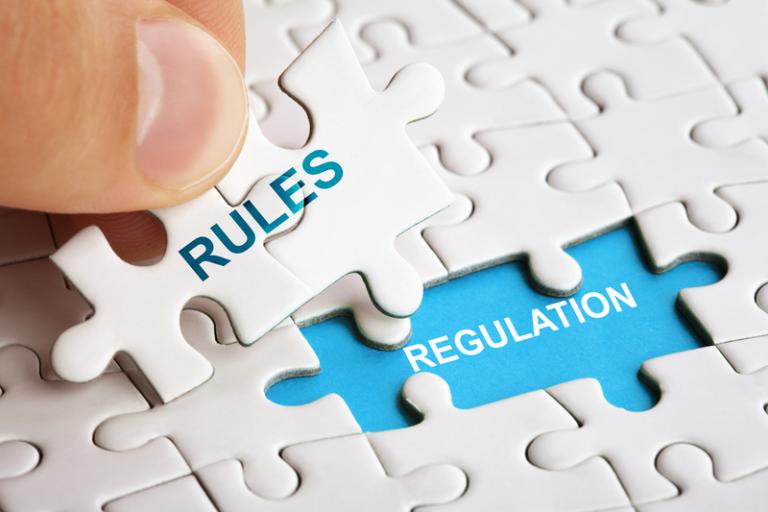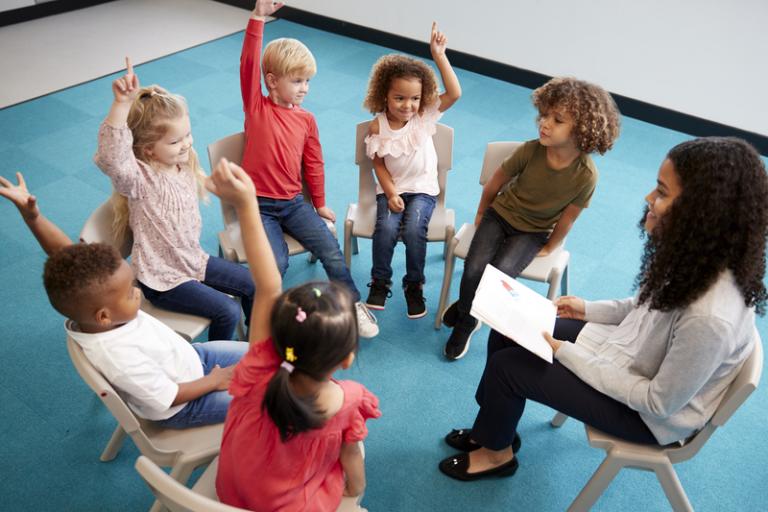We have no magic wand that says, “OK, we’re just going to dismantle racism and be done with it.” We need consistent, systemic change that affects both all levels of society and the most profound parts of our souls.

Here’s a universal life maxim: the dominants of any society always set the rules. True from the schoolroom to the boardroom, from the church council to the war room, from the prison cell to the palace. The person/group with the most power decides who gets to relate to whom and with what parameters; they set the standards of conversation, dress, and decorum.
These rules are generally unwritten and almost always unacknowledged, but woe be to the person who doesn’t learn them quickly and practice careful adherence. Such ones will find themselves excluded promptly from in-group privilege, and their voices silenced.
In the US, whites dominate the power and set the rules. The unwritten rule: look white, dress white, and speak white or stay on the outside, ever silenced, denied usual means of gaining seats at the table.
Here’s another universal life maxim: A tight, cohesive group gains strength and influence much faster than the more loosely organized. The best way to ensure group cohesion? Elevate the fear level of people and ideas on the outside. Fears of contamination, loss of social status, unwanted ideas, economic decline, undesirable and/or unapproved sexual activity. The higher and tighter the boundaries, the better the group will function.
Why? Because when a group has a robust set of shared values and expectations, they don’t have to waste energy figuring out who is a threat to their established ways and who is not, who knows the rules and who doesn’t, who believes like them and who does not. All those on the inside have already been vetted, thus releasing massive energy for growth, for proselytizing, for getting new members quickly up to speed, for moving forward with the stated goals, generally domination of some sort.
Here’s the third universal life maxim: the higher the fear level of any given group, the most likely it will live from an established set of “isms,” i.e., racism, sexism, gender-ism (I think I just made that word up, but you know what I mean). To move away from any of those stances towards inclusivity demands a high level of security and a far lower level of fear.
A hungry, fear-laden society has few resources to dismantle racism.
So, if a society is hungry or has been invaded, is experiencing economic collapse or beset by a pandemic, fear levels and their accompanying walls grow higher, while the ability to be inclusive decreases. That’s why we rounded into encampments thousands of innocent Japanese-Americans at the beginning of WWII; why a segment of US citizens wanted to ban peaceful Muslims after 9/11; why the pandemic raised the level of protests and counter-protests.
 And here is the fourth life maxim: Power builds on the backs of a permanent underclass. I’ll never forget my visit to St. Petersburg, Russia. Peter the Great is credited with building that city out of a swamp. It’s, “Peter did this, and Peter did that.”
And here is the fourth life maxim: Power builds on the backs of a permanent underclass. I’ll never forget my visit to St. Petersburg, Russia. Peter the Great is credited with building that city out of a swamp. It’s, “Peter did this, and Peter did that.”
Rarely mentioned to the tourists, unless there is a nosy one like me, is that the city is built on the backs of 300,000 conscripted workers. Many died. Possibly as many as 100,000 bodies are buried under the palaces there.
And that’s just one example. Stalin built his Soviet Union by killing possibly as many as 20,000,000 people. This fear-laden paranoic man either had perceived “enemies” i.e., those who did not toe the party line without dissent, executed or sentenced to prison camps where they toiled, without adequate food or clothing, to complete his building projects and support his empire. If you’ve never seen it, watch this dark comedy, “The Death of Stalin,” and you’ll see what I mean.
So, the final life maxim: the more anyone can raise the fear level of his or her followers, the more likely it is that he/she will remain in power and will stay on top. Because of the addictive nature of power, be it social, economic, political, or religious, it is challenging to give up.
Think opioids on steroids. Once someone has power, they’ll pull out all the stops to keep it. To dismantle racism, we must also dismantle current power structures that reinforce the “isms.”
Now, the grammar purists would just say, “How can you, in the paragraph above, use “they” to refer to “someone” since “they” is plural, and “someone” is single. Well, this is my tiny effort to be more inclusive and recognize that the grammatical she/he dichotomy is one of those rules that must be broken and new rules built if we are going to integrate inclusivity.
But then the moment I say such things, a large number of religious folk are going to start shouting, “BUT GOD MADE THEM MALE AND FEMALE, AND ANYTHING ELSE IS AN ABOMINATION.”
See how hard this is? Just to move to more inclusive grammar gets the fear level up of a bunch of pretty darn good people who simply have not yet been able to move to a more inclusive understanding of gender and sexuality.
So what do we do with those folks? Exclude them in the name of inclusivity?
Again, you see how hard it is to dismantle racism?
We must not ignore human nature and think we’ll be successful.
We are fighting the deepest part of our human nature when we seek to leave behind our “isms” and embrace true inclusivity. All of us carry cellular memories of the eons when our ancestors, the hunters and gatherers, lived in small, inter-related, ever-mobile bands. They formed connections with other small bands by marriage, but when meeting a group with whom there are no genetic connections, they either approach the other with deep, deep suspicion and full guardedness or risk deadly slaughter.
The fear is real, and it is protective. It’s built into us.
Once more, do you see how hard it is to dismantle racism?
I’m a woman, short, never strong anyway, anything but fleet-of-foot, and showing signs of increasing frailty as I age. What do my cellular memories tell me to do when confronted with a situation that pulls me out of my comfort zone? Mine says, “Hide, get perfectly still, and work not to reveal myself in any way so I can stay safe and quietly shelter anyone vulnerable who might be with me.”
My husband, also short, but a lifelong athlete who, as he has often told me, will cross the street to get into a fight (just as I would cross the street to get out of a fight), has an opposite reaction to a situation that is distinctively uncomfortable. He gets more powerful, more visible, more confrontive, and ferociously protective of his loved ones.
In either case, our gut reactions are the opposite of open and welcoming. It takes courage, practice, plus a great deal of inner security to open the doors and tear down the walls when such encounters are, to our still active ancient brains, threatening.
Different languages multiply problems. Differing cultural understandings can destroy communication. In one culture, some gestures that are welcoming look distinctly non-welcoming to those coming from different places. And that’s just the beginning.
And yet once more, do you see how hard it is to dismantle racism?
So what do we do? We simply cannot go on like this and expect any movement to a more just society.
Some suggestions as we set our minds and talents to the necessary task in front of us: DISMANTLE RACISM.
Let us start by honestly acknowledging human nature: being radically inclusive is not part of our genetic and cellular memories and historically has not contributed to survival. The less inclusive societies have always done “better” in terms of staying alive, gaining power and status than the more inclusive ones.
Thankfully, the world has changed: we are at a point where greater inclusivity now means an increased chance at surviving and thriving.
Let us also acknowledge that the vast majority of us are capable of doing what must be done. It may be difficult, but we have both the individual and corporate abilities to intentionally dismantle racist attitudes, structures, and practices.
Next, we must remember that the higher the fear level in any given society or people group, the less likelihood of the embrace of the other. Right now, the entire world swims in fear of death and damage from Covid-19. We have had to shut ourselves off from others, and this shutting off reinforces our built-in fear of the other.
Suffering from “Maskism”
Already, there are explosions between the mask-wearing and the mask-denying folk. I admit it: as a faithful mask-wearer, I want to rip into the mask-deniers, which does not exactly help with the tension and forms its own set of “isms.” I guess, in fact, I now suffer from “maskism.” Sigh.
So, that segues to my last suggestion: we must develop an agreed-upon set of principles by which we will work together to dismantle racism (and all the rest of the “isms”).
And now, I realize that I am about to beat my head bloody against the current stone wall. Our country is divided to the point now of near destruction. We can’t even agree on the necessity of wearing masks, the one single thing that would be most effective as we deal with the pandemic.
The most innocuous opinion, publicly posted, can unleash a torrent of electronic abuse. The concept of public and private civilized discourse, along with the art of listening carefully and generously to different opinions, has been tossed on a trash heap named “old-fashioned, unimportant, ridiculous.”
Instead, too many put in too much time to diligently hit others as hard as possible on social media platforms, Twitter probably being the place that makes it ridiculously easy to do that kind of “hit and run” destruction.
Two Strategies Necessary
So, what shall we do? First, we ground ourselves in the nature of God, the ultimate creator of all this diversity. As we learn security in the love of God, we can extend security in the love of neighbor. But to find that security, we have to leave behind fear-based religion, the kind that actually engenders “isms” by declaring that all on the outside of their tight, high boundary walls are in some way wrong, deficient, or destined for hell.
BUT . . . here’s the problem: Inclusive religious structures cannot possibly grow as fast as exclusive religious structures for the very reasons I listed above: it takes too much energy to be inclusive.
Do you want fast church growth? Be exclusive by nature. I’ve written more about this over the years. This article explains specifically why the UMC cannot quickly plant churches, again because we are too inclusive, too diverse.
But let us suppose for a moment that those of us who are free from fear-based, exclusive religious structures can engage in the second necessary task: exposing more fully the divisive economics of poverty. Truly, when people are on the economic edge—or have fallen off—there is simply no energy left to publically or private address issues of injustice and racism. All energy is spent trying to survive.
Behind pervasive poverty lies the educational gaps between rich and poor. Let’s face it: the rich will get their kids educated. But it is the public responsibility and very much in the public interest to make sure all children get solid nurturing and education from their earliest moments of life.
Our best investment ever.
 The best investment we could ever make toward dismantling racism is to fund universal and high-quality child care and make sure the school districts with the highest percentage of underprivileged kids also have the highest percentage of highly skilled and well-paid educators.
The best investment we could ever make toward dismantling racism is to fund universal and high-quality child care and make sure the school districts with the highest percentage of underprivileged kids also have the highest percentage of highly skilled and well-paid educators.
We need the best of the best there and they need to be more than properly compensated for that work.
We’ve talked a lot over the last few months about who is an “essential” worker and who is not. What has become clear to most of us is that the “essential” workers are primarily the lowest paid and least supported members of our society. Most of the highest paid, such as the elite athletes and celebrity superstars, are anything but essential.
We simply would not be surviving right now without the endless labors of cleaners, health-care providers at all levels, trash haulers, cooks, food producers and distributors; without truckers and day laborers, without lab techs and researchers, without factory workers and good managers who keep them safe.
The general consensus across the board is that most children, particularly those already on the lower ends of educational achievement and had to move from classroom education to remote education (except for the intentionally home-schooled, a very different category), now have significant learning deficits. It is likely that most will need to repeat the entire school year to catch up. They must have hands-on, physically present teachers.
Why don’t we compensate them properly for their front-line work?
Seriously? What is the matter with us that we do not fund the future of this country with top-class educators and support? This, above all, is the biggest weakness in the US right now: our utter shortsightedness with the way we treat our greatest resources: our children and the next set of leaders. Treat them well, give them top-class education, and watch two things happen: poverty and racism recede. They go together.
We have no magic wand that says, “OK, we’re just going to dismantle racism and be done with it.” We need consistent, systemic change that affects both all levels of society and the most profound parts of our souls.
This won’t come easy. But it is doable. And must be done.
Photo credits:
ID 152716809 © Maxim Evdokimov | Dreamstime.com
Peter the Great, By After Jean-Marc Nattier – [1], Public Domain, Link
ID 136308406 © Monkey Business Images | Dreamstime.com













